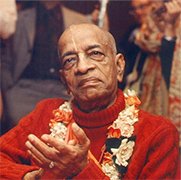In the Shanti-parva of Mahabharata there are many instructions by Bhismadeva on morality and religiosity. Here is a glimpse of the conversation between Yudhisthira and Bhisma, two exalted personalities, providing priceless gems of wisdom for us to absorb and apply in our daily lives.
Yudhisthira inquired, "Who can one put their trust in?"
Bhisma Replied, "A father and mother can be trusted naturally, but friends and companions need to be constantly rewarded to secure their trust. Animosity arises out of five causes: woman, wealth, harsh words, natural incompatibility and injury. Animosity, once created, will always lie dormant in the heart, just as fire in wood. Once ignited it cannot be extinguished unless one of the parties is destroyed. Therefore one must never trust a person he has animosity with, despite assurances to the contradictory, for such animosity lingers for a very long time."
Y: "What are the various kinds of activities?"
B: "One's greatest enemy is idleness. On the other hand, one should not act feverishly or blindly. Everything should be done by appropriate means and for a valid reason. A task carried out by the mind is considered to be the best. Those done by the hands are mediocre and those by the feet inferior. The lowest is the task of carrying heavy loads."
Y: "What should one do after having lost all prosperity?"
B: "One who has fallen into a very distressed condition of life, bereft of friends, family, wealth and reputation, should practice fortitude and not give way to grief in any circumstances. Indulgence in grief destroys one's beauty, duration of life, prosperity and virtue. One who constantly dwells on his misfortune looses all enthusiasm, mental equilibrium and bodily strength, and thus meets total defeat. On the other hand if a distressed person remains fixed and undisturbed, he can easily regain his position when the next opportunity arises."
Y: "How should one react to people who insult you by their rudeness and arrogance?"
B: "If one does not become angry when insulted by another, then he takes away all the pious merit that person may have accumulated by good deeds. In addition he transfers to the abuser the reactions of his own sinful activities. Ultimately, what is the value of praise or blame when uttered by a vulgar fool?"
Y: "What produces the highest merit?"
B: "Self-restraint surpasses all other activities in this regard and is therefore considered to be the highest virtue. Because self-restraint purifies and controls every aspect of one's life it is more important than giving in charity and the study of the Vedas. By self-restraint alone one can achieve liberation from the material world. Self restraint comprises sense-control, freedom from anger, non-enviousness, impartiality, truthfulness, steadiness and contentment. However, the essential quality of self-restraint is austerity and no good can be achieved without austerity."
Y: "What is the origin of all sin?"
B: "Greed, the hankering to posses more than one's naturally ordained quota, is the origin of all sin. The desire to posses that which belongs to another gives rise to anger, lust, loss of judgment, arrogance, lack of compassion, mistrust and many other evils."
Y: "Since time seems to destroy everything, what should be sought after?"
B: "One should seek to determine the supreme duty of life. One should not live in ignorance throughout ones life thinking that only in old-age knowledge may be cultivated. Death can snatch us at any moment. Therefore, as soon as possible one should endeavor to take up the supreme duty of life."
Y: "Please describe to me the supreme duty of life, and the results which are obtained by its performance?"
B: "Religious duties are numerous and diverse and the correct performance of any one of them will never be futile. But, dedication to the path of self-realization is the supremely religious duty that stands above all others. The realization that all things in the material world are temporary and thus of no inherent value automatically results in a gradual detachment from desire for material enjoyment. Such self-realization will result in liberation from material bondage. However, superior to this is unmotivated devotional service to the Supreme Lord Sri Krishna. By such service one can reach Goloka, the highest realm in the spiritual world, and reside there for eternity. This is the highest path of self-realization."
